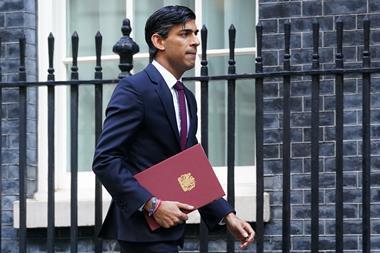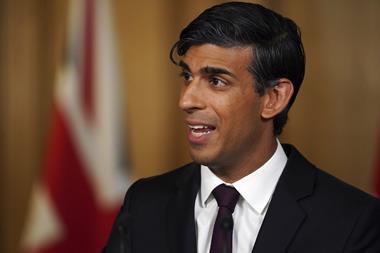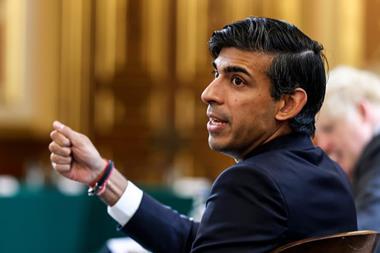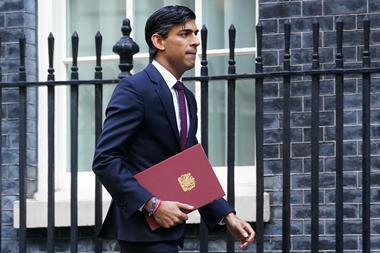The chancellor of the exchequer has unveiled plans for a £4bn “levelling-up fund” as part of his spending review today.
In a truncated spending review marked by top-line figures which highlighted the scale of the damage the coronavirus has done to the UK’s finances, chancellor Rishi Sunak pledged £4bn next year to “drive growth and regeneration in places in need, those facing particular challenges, and areas that have received less government investment in recent years”.
Sunak said that any local area would be able to bid directly for a share of the funding – but they must be delivered within this parliament “and they must command local support”.
These could include bypasses, upgraded railway stations, less traffic or more libraries, museums and galleries, and could have a profound impact on towns and high streets.
Announcing the new fund, Sunak added the “most powerful barometer of economic success is the change people see and the pride they feel in the places they call home”.
More information on how areas can apply for funding and what those funds can be spent on will be issued in the new year.
Much of the funding will be made available by the government’s move to temporarily slash its foreign aid commitment from 0.7% to 0.5% of spending next year.
British Retail Consortium chief executive Helen Dickinson said she ”hope[d] the fund can be used to provide much needed investment in town and city centres, supporting local communities and businesses around the country.”
The chancellor also said that from next year the National Living Wage would be increased by 2.2% to £8.91, as well as staggered increases to the National Minimum Wage and apprenticeship pay.
Retail union Usdaw general secretary Paddy Lillis said the increase was not enough to support workers and criticised Sunak for not making the £20 uplift to Universal Credit permanent.
”Millions of low-paid workers have provided essential services to help ensure the country is fed, healthy and safe through the lockdown and will continue to do so. Usdaw members employed in our supermarkets, distribution warehouses, food processing sites and home delivery operations welcomed the key worker status, but that respect and appreciation must not fade into the background when this national crisis passes.”
While the chancellor didn’t give any indication on the government’s long-term plans with regards to business rates, the spending review document confirmed a freeze on the business rates multiplier for 2021-22 and said there would be no reset of business rates baselines next year.
The review also pledged £22m to “modernise the Valuations Office Agency” to make it “more flexible, efficient and resilient”.
Sunak’s review also guarantees £762m for local authorities to make up for business rates revenues lost due to the freeze this year.
Dickinson said the BRC is “encouraged that the government is considering options for further rates relief for businesses affected by Covid,” but warned a return to full business rates liability from April 2021 would be impossible for some firms to meet and freezing the multiplier in 2021/22 does not solve this problem.
The chancellor began his remarks in the House of Commons by laying bare the effect the virus and restrictions have had on the UK’s public purse.
Sunak said government borrowing was expected to hit £394bn this year, more than any other year in peacetime. He also warned that unemployment was expected to surge to 2.6 million by the middle of next year.
The chancellor said the economy was predicted to contract by 11.3% – “the largest fall in output for more than 300 years” – and grow by 5.5% next year and 6.6% in 2022.
He added: “Even with growth returning, our economic output is not expected to return to pre-crisis levels until the fourth quarter of 2022. And the economic damage is likely to be lasting.”
Sunak also confirmed that the majority of the public sector would be facing a freeze on pay rises next year, although exempted NHS staff from that for their work throughout the coronavirus pandemic.
Shadow chancellor Anneliese Dodds criticised the pay freeze for the public sector, calling it a “sledgehammer to consumer confidence”.


























No comments yet